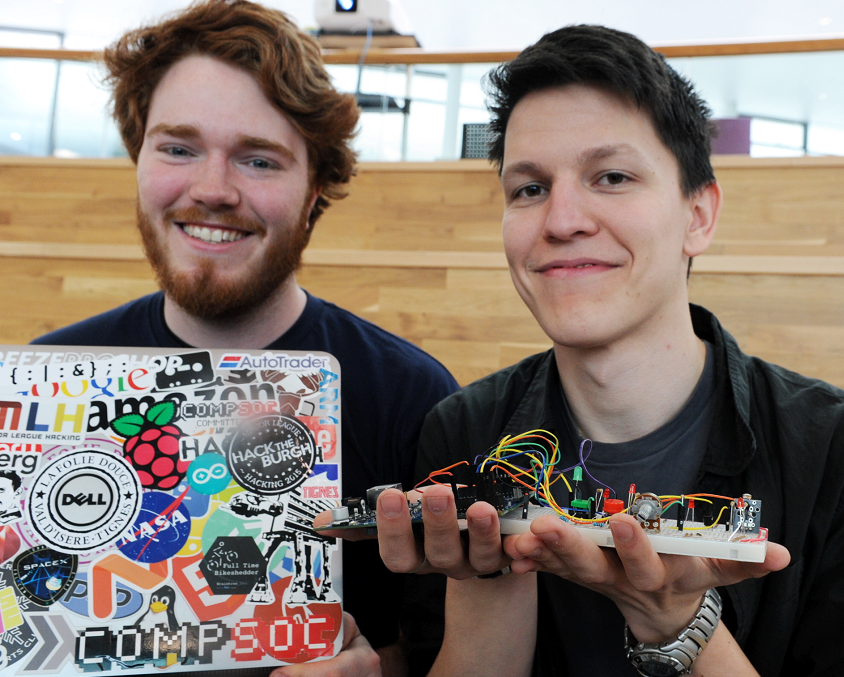Dozens of data duellists took part in a round-the-clock computer hacking competition this weekend at Robert Gordon University.
Students from RGU and Aberdeen and Dundee universities stayed awake for 24 hours to take on three different coding challenges with tiny, customisable computers.
As part of the university’s first official Major League Hacking “Hackathon” event, the students were tasked with creating “something amazing” using hardware they were given to hack on the day.
The competition resulted in a slew of inventions, including a rudimentary version of the popular children’s toy “Bop-It!”, made using a tiny Intel computer.
Stan Hamara, who helped organise the event, said: “In layman’s terms our ‘Hackathon’ had students being presented with three different coding challenges.
“Each team picked their own challenge, and at 1pm on Saturday the timer started and they were given the challenge of making something amazing by 1pm on Sunday with whatever they had to work with.
“Hacking has multiple definitions. The majority of people think of hacking as breaking into something, but this community takes hacking as improving something.
“Some people had to sleep, but the majority of people were up all night working hard to make their creations just right.”
Angus Pearson, from Major League Hacking, said: “A lot of stuff that gets taught on computing degrees isn’t terribly practical, and developing real world programming skills is actually quite difficult, so this kind of event really helps with that.
“There’s a huge amount of peer-assisted learning, people help each other out, teach each other new things, it’s a really good opportunity to just dig into a project, and it’s also a great boost for a student’s CV.”
